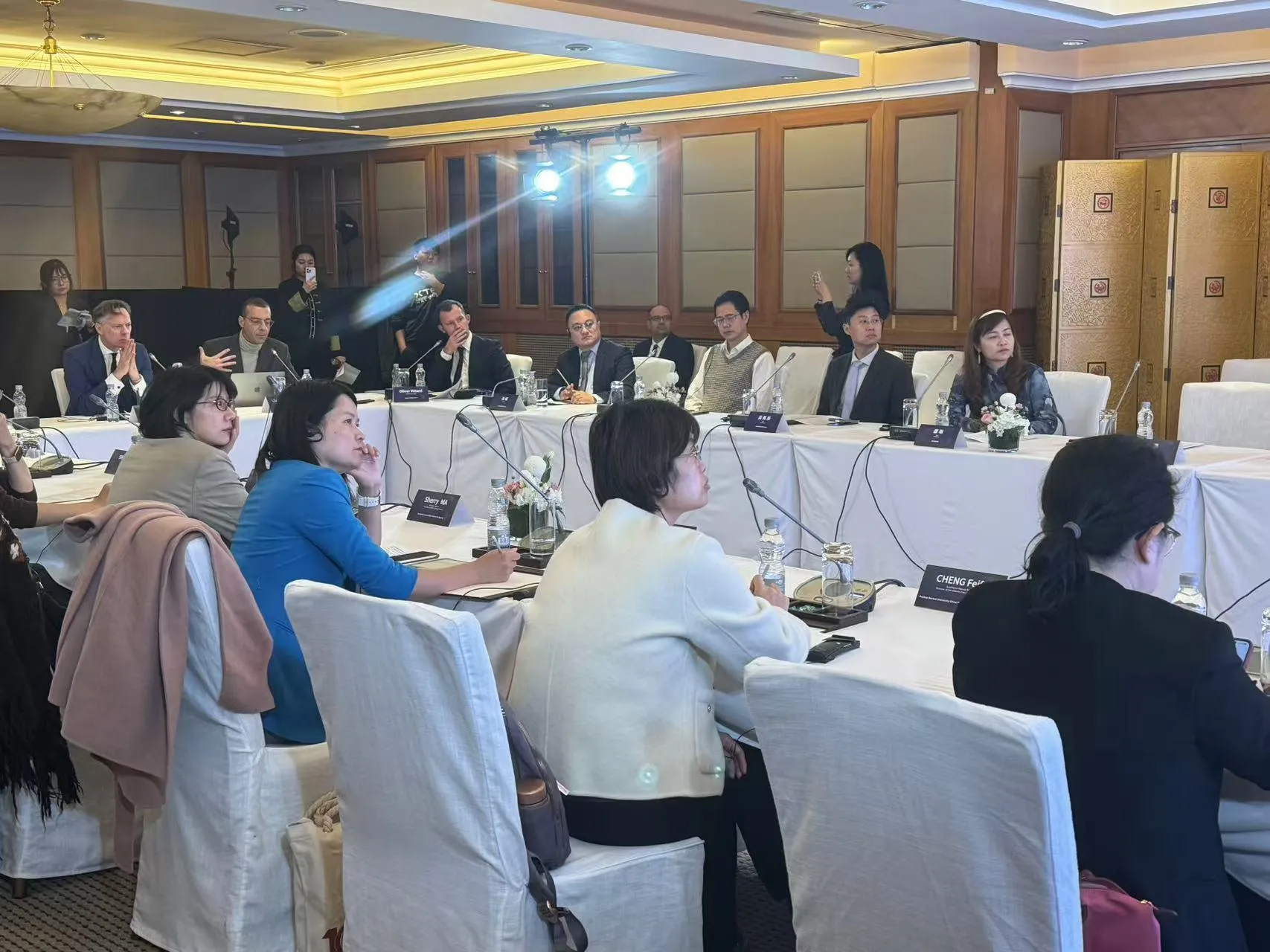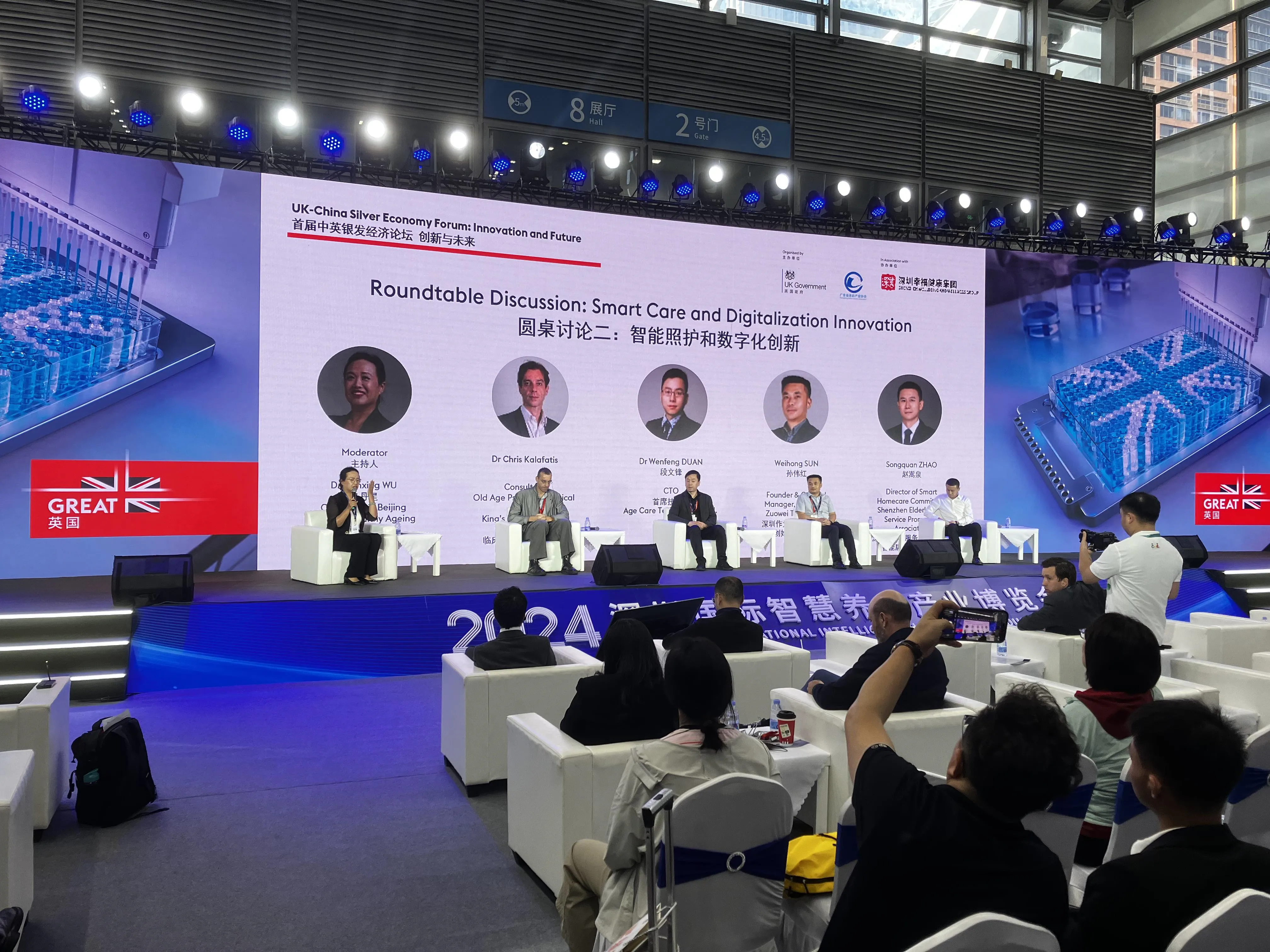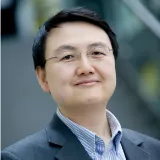Engagement with our networks in China at the government and policy level enables King’s to enhance our international academic and industry partnerships to better understand issues related to population ageing in the Far East. Access to resources and expertise in the region represent an important opportunity for ARK to develop collaborations in healthy ageing and preventive medicine research over the next decade.
Dr Richard Siow, Director of Ageing Research at King’s
04 December 2024
King's academics present their research at healthy ageing events in China
Researchers from King’s College London recently attended two events in China that shared insights into international strategies to promote healthy ageing and support populations as they grow older.

The invitation by the British Embassy in Beijing to participate in these events was a direct follow up to the visit to King’s in April by a delegation of the National Health Commission and Chinese Embassy in London. The delegation met with colleagues involved in Ageing Research at King’s (ARK) – a cross-faculty multidisciplinary consortium which brings together scholarship, research, innovation and entrepreneurship in ageing across the life course. In October, several ARK academics visited China to share their research and forge international connections.
ARK-China Healthy Ageing Roundtable
The first event, an ARK-China Healthy Ageing Roundtable, took place in Beijing on 23 October. Organised by the British Embassy in Beijing, the meeting focused on the shared challenges and opportunities that the UK and China face with regards to healthy ageing, with the aim of identifying areas for collaboration.
Dr Oliver Witard, Reader in Exercise Metabolism & Nutrition in the Faculty of Life Sciences & Medicine (FoLSM), and Dr Chris Kalafatis, Consultant in Old Age Psychiatry in the Institute of Psychiatry, Psychology & Neuroscience, attended the meeting in person to talk about their ageing research. They were joined online by Dr Siow and Professor Claire Steves, Professor of Ageing and Health in FoLSM.

Dr Witard’s research is focused on understanding the physiology that underpins why we lose muscle mass and quality with age, and explores the role of exercise and nutritional interventions to combat age-related changes in muscle metabolism.
At the meeting, he spoke about the importance of maintaining muscle as we get older, not only for maintaining mobility, but also for helping to prevent the development of metabolic disorders such as diabetes. He highlighted the importance of exercise for older people, and how the focus should be on promoting the use of exercise as a preventative measure, rather than a curative one, to help us stay healthy as we age.
Dr Kalafatis is interested in brain health and digital innovation at the service level. At the meeting, he presented the ARK initiatives focused on brain health, including current research on the early diagnosis of dementia and the digital platforms that enable patients to participate in research remotely.
Dr Kalafatis shared details on the NIHR HealthTech Research Centre (HRC) in Brain Health, which investigates the use of cutting-edge technology to solve major challenges in the field of brain health and dementia research in diagnosis, care, and treatment, and the South London and Maudsley Brain Health Clinic, a remote service that offers translational research towards early diagnosis, risk stratification and prevention of neurodegeneration.
Professor Steves, who leads the Centre for Ageing Resilience in a Changing Environment (CARICE) at King’s, spoke about the work within the Centre, which aims to build resilience in ageing as we face major global challenges. She highlighted how climate change affects human physiology and the disproportionate impact this can have on older people, and how research from the Centre is helping to shape health policy.
China representatives included Ms Hao Xiaoning of the National Health Commission, and Ms Zhang Shuo, Deputy Director, Beijing Health & Elderly Care Group. Ms Shuo spoke about learnings that could be shared between China and the UK with regards to ageing interventions in care home settings versus community settings.
It is the government’s ambition for everyone to have five extra years of healthy, independent life by 2035 and to narrow the gap between the richest and poorest. We believe that enabling people to live longer, healthier, and more active lives is one of society's greatest achievements. The government aims to reduce health inequalities and ensure that older adults can contribute their skills, knowledge, and experience to the community.
Rahul Agarwal, Counsellor for Healthcare & Life Sciences from the UK’s Department for Business and Trade at the British Embassy in Beijing
UK-China Silver Economy Forum
The second event was the UK-China Silver Economy Forum held in Shenzhen on 25 October, organised by the Department for Business and Trade and its local partners. The event brought together government leaders, industry experts, and academic leaders from China and the UK to discuss initiatives that support ageing populations. ARK was again represented by Dr Witard and Dr Kalafatis.
Dr Kalafatis delivered a keynote talk during the first session of the meeting, which focused on how medical technologies can be used to support healthy ageing. He was also a panellist for a roundtable discussion on smart care and digitalisation innovation.
Dr Witard was a panel member for a roundtable discussion on lifestyle medicine and anti-ageing, where he again highlighted the importance of exercise in promoting healthy ageing.
The event was a valuable opportunity for ARK researchers to make international connections for potential future collaborations, which will be key to addressing the challenges faced by ageing populations and finding ways to live healthier for longer.

In this story
Related departments
- Ageing Research at King's (ARK)
- Faculty of Life Sciences & Medicine
- Institute of Psychiatry, Psychology & Neuroscience
- School of Basic & Medical Biosciences
- School of Life Course & Population Sciences
- School of Cardiovascular and Metabolic Medicine & Sciences
- Centre for Ageing Resilience In a Changing Environment - CARICE




